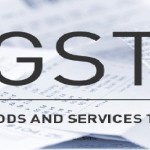Income from freelancing or gig economy platforms is considered as "Income from Business or Profession" under the Income Tax Act. As a first-time filer, you will need to report this income separately from any salary or other sources of income you may have.
Table of contents [Show]
Maintenance of Books of Accounts
As a freelancer or gig worker, you are required to maintain books of accounts to record your income and expenses. This includes maintaining records of invoices, receipts, bank statements, and any other relevant financial documents. Although not mandatory for individuals with income below a certain threshold, it is advisable to maintain accurate records to support your income and expenses during the tax filing process.
Calculation of Taxable Income
To calculate your taxable income from freelancing or gig economy income, you need to deduct the expenses incurred in generating that income. Allowable expenses may include equipment costs, internet charges, professional subscriptions, marketing expenses, travel expenses, and any other directly related costs. It is important to keep supporting documents for these expenses.
Advance Tax Payments
If your freelancing or gig economy income exceeds a certain threshold, you may be required to pay advance tax. Advance tax is the payment of taxes in installments during the financial year, as opposed to a lump sum at the end. Failure to pay advance tax, if applicable, may attract penalties.
Deductions and Benefits
As a freelancer or gig worker, you can claim deductions for business-related expenses under Section 30 to 37 of the Income Tax Act. These deductions can assist in lowering your taxable income and total tax burden. It is advisable to consult a tax professional to identify eligible deductions and ensure proper compliance.
As a first-time filer in India with income from freelancing or gig economy platforms, understanding the tax implications is crucial to meet your tax obligations. By accurately reporting your income, maintaining proper records, and availing of eligible deductions, you can ensure compliance and optimize your tax liability. It is recommended to seek guidance from a tax professional or refer to the Income Tax Department's guidelines for specific details related to your circumstances.
Look up more articles here for a smooth first time tax-filing process. All the best!








